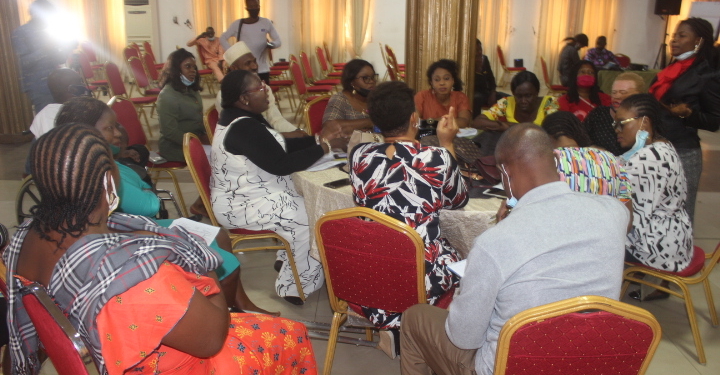FACICP Disability Plus, A Disabled Peoples Organization has launched Gender Based Violence Monitoring and Advocacy Partnership, GBV-MAP with the aim of ensuring the inclusion of Women with Disabilities in all GBV response.
The GBV-MAP, which is a collaboration between Women’s rights movement and Disabled Women’s Organization, was launched during a roundtable meeting to develop guidelines for the inclusion of WWDs in GBV interventions in the COVID-19 response, organized by FACICP Disability Plus with support from Mobility International, USA.
Ekaete Judith Umoh, Executive Director, FACICP Disability Plus, disclosed that GBV-MAP has been set up to “facilitate strategic partnership between Women with disabilities and other critical stakeholders for the purpose of sustaining advocacy and monitoring of inclusive GBV interventions.”
She also stressed that the roundtable discussion was to strengthen the capacity of Women’s rights Advocate, the Media, Disability Inclusion Advocates, GBV –Focused Ministries Departments and Agencies to demand for more inclusion of WWDs in GBV interventions.
Umoh thereafter urged diverse participants at the meeting to continuously ensure the inclusion of WWDs in all GBV response as WWDs are worst hit especially during the COVID-19 pandemic.
Earlier, while presenting the report of a rapid response survey conducted by FACICP Disability Plus, Inclusion Development Consultant, Dr. Adebukola Adebayo revealed that, “the intersection between disability and gender increases vulnerability of persons with disabilities (PWDs) especially for women and girls with disabilities.
“As shown in several credible international researches, the vulnerability of WWDs particularly in low and middle income countries is higher than in more developed climes. This situation has been worsened by the crises created by the prevailing COVID-19 global pandemic.”
Dr. Adebayo also added that, “women and girls with disabilities have been found to be increasingly vulnerable to poverty due to several forms of discrimination manifesting through culturally rooted male preferences and universal devaluation of disabilities.”
On her part, Dr. Amina Saliu, Women’s Rights Advocate, stressed that laws in the society “should protect the right of women whether disabled or not and women should always be included in all provisions of the law”.
She noted that WWDs should live safely in a space without any form of discrimination or abuse, adding that government’s interventions must be inclusive of Women with Disabilities.
While speaking on the role of CSOs and Media in Promoting Inclusive GBV interventions for WWDs, Blessing Oladunjoye, Publisher of BONews Service, tasked Disabled Women Leaders and organizations to establish strategic partnership with the media for the purpose of advancing issues of WWDs.
Present at the roundtable discussion were; Executive Secretary of the National Disability Commission of Persons with Disabilities, Representatives of Women’s Rights Organizations and WWDs from various clusters.

